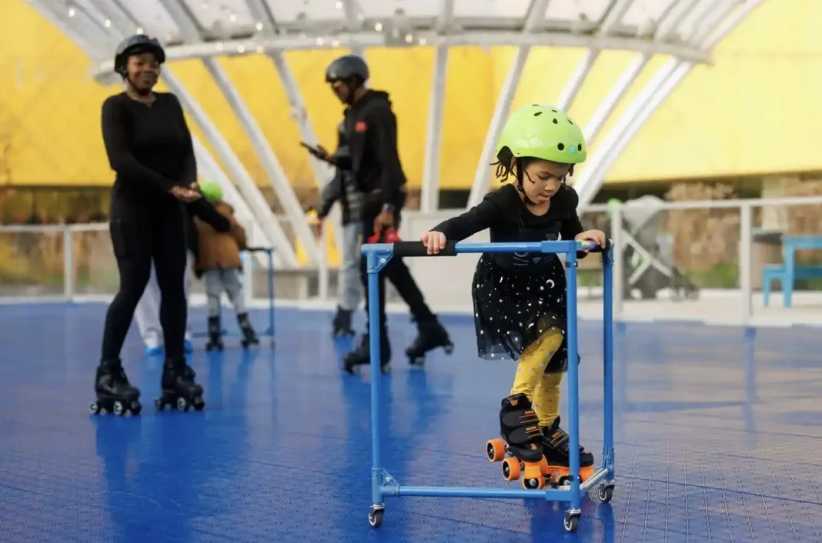 As a parent on the sidelines, it can be challenging to watch your little competitor have a tough day on the field. “Sports should be about fun, socialization and participation,” says Sal Chiariello, director of All Sports Day Camp in Tarrytown. “All coaches, parents and camp counselors must be aware of that important distinction and not put too much emphasis on competition.” But we can all agree that the element of competition takes hold some days more than others-and in every game, someone has to lose; and for every team, someone will be the last player picked. Remember that these heart-wrenching moments for you can also be valuable life lessons for your kids. To help you handle them, we asked local experts to answer the following question:
As a parent on the sidelines, it can be challenging to watch your little competitor have a tough day on the field. “Sports should be about fun, socialization and participation,” says Sal Chiariello, director of All Sports Day Camp in Tarrytown. “All coaches, parents and camp counselors must be aware of that important distinction and not put too much emphasis on competition.” But we can all agree that the element of competition takes hold some days more than others-and in every game, someone has to lose; and for every team, someone will be the last player picked. Remember that these heart-wrenching moments for you can also be valuable life lessons for your kids. To help you handle them, we asked local experts to answer the following question:
| How should I handle it when my child is frustrated or upset after a particularly bad day with sports? |
Advice from experts in the Westchester County, NY, area:
“Many people don’t know that Michael Jordan was cut from his varsity team as a high school sophomore. While it is important to keep sports in perspective and be realistic about your child’s athletic potential, it is also important to stress that in sports, as in life, you can’t just accept disappointment and/or perceived criticism and simply give up. You can tell the child that persistence is an admirable trait, and that you as the parent will be very impressed if he or she will give it a second try. And you can tell the child that persistence sometimes pays off. Just look at Michael Jordan.”
-Noel Muyskens, executive director, MVP Basketball Camp, White Plains, NY
“One of the primary problems of sports for young children is the disappointment and the fear that is inherent with participation and competition. Parents can be helpful and instrumental in maintaining a child’s self-esteem and pride. They must keep the lines of communication open with their children, and they must be good listeners. Parents should be nonjudgmental and empathetic with their children’s successes and failures in sports. If their child is having a tough time on the field, parents should play down the importance of one day, and possibly share stories of themselves when they were that age. The sharing of experience is a great way to demonstrate to your children your own vulnerability at that age. Also, make a real effort to practice with them and assist them. Spending time alone with your child can make these times special.”
-Sal Chiariello, director, All Sports Day Camp, Tarrytown, NY
“There are many ways to help a child learn from these experiences. One can use stories about great people who have overcome ‘failures’ or losses to achieve great accomplishments-from Michael Jordan, who was famously cut from his JV basketball team, to Abraham Lincoln, who twice failed in his bids for U.S. Senate before becoming President. It is also important to find the right time to have these discussions. Wait until after the raw emotions have cooled off and everyone can see things more objectively. As a coach, player, or parent, one can learn more from a loss or bad day then from a win.
Try to establish a healthy relationship with respect to your child’s competitions from the beginning. React the same to their wins and losses at all levels, and don’t get caught up in their individual achievements, such as points scored. Rewards should only be used for effort and sportsmanship, not results. It is critical that a child feels the unconditional love and support from home because there is enough pressure from coaches, teammates-and the kids themselves.”
-Jordan Snider, director of operations, Future Stars Summer Camps, Purchase and Armonk
“I would tell your child not to dwell on one disappointing day or performance. Many successful athletes have had disappointing days and they don’t give up on themselves. Kids should learn from their experience, go out and try again. And have fun!”
-Cynthia Davanzo, camp director, Squire Sports Camps, Dobbs Ferry, NY
“This can become a valuable life lesson for your child. It’s important for parents to motivate and encourage their kids-work together! Here are some conversation guidelines that can help boost your child’s self-confidence and encourage him or her not to give up:
- Acknowledge your child’s feelings. (‘I know how bad you feel about this.’)
- Explain that having a bad day happens to everyone, from five-year-olds to professional athletes. (‘Did you know that even Derek Jeter has bad days?’)
- Point out something your child did well that day, or areas where you noticed improvement.
- Work with your child on ways to improve for next time, whether it be increased practice time or honing a specific skill. (‘Let’s try to figure out together what went wrong. What do you think we should do between now and then, so that the next time will be better?’)”
-Stan Friedmann, director, Mount Tom Day Camp, New Rochelle, NY
Do you have kids heading off to summer camp? Learn how to deal with the inevitable separation anxiety, and find other great advice from experts in your area at NYMetroParents.com/AskTheExperts.












